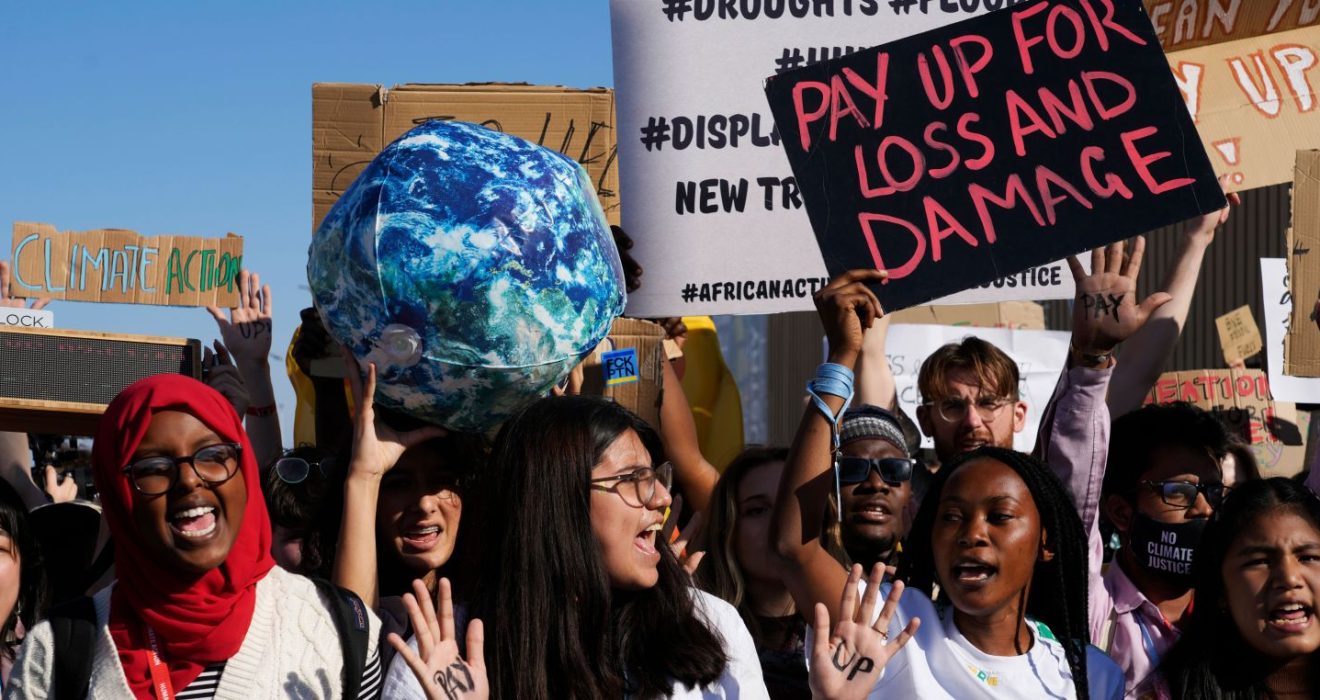The recent 28th United Nations Climate Change Conference COP28 climate conference held in Dubai marked a historic moment as countries pledged substantial financial commitments to address climate change. Sultan al-Jaber, the president of the conference, hailed the event’s significance, emphasizing that this marked the first decision adopted on Day One of any COP. Notably, the United Arab Emirates pledged $100 million, and other major contributions followed suit, with Germany also committing $100 million.
Key Highlights of Financial Commitments
In the initial hour alone, the total financial commitments exceeded $420 million, showcasing a global commitment to tackling climate change. John Kerry, the U.S. climate envoy, announced that the U.S. administration is working with Congress to provide $17.5 million. He highlighted that the fund’s establishment is a collective effort, as the scale of the climate change challenge is too large for any single government to handle.
Challenges and Criticisms
While the financial pledges were seen as a strong first step, some advocacy groups expressed the view that they were a small and inadequate start. Rachel Cleetus, policy director for climate and energy at the Union of Concerned Scientists, urged wealthy nations, including the United States, to provide more significant contributions in the future.
Developing nations, which are disproportionately affected by climate disasters, have long sought adequate funding to address these challenges. The recent agreement establishes a “loss and damage fund,” but many details remain unresolved, such as its size and long-term administration.
Skepticism and Future Concerns
Despite the positive momentum, some activists and experts remain skeptical about the fund’s ability to raise the estimated $387 billion annually needed for developing countries to adapt to climate-driven changes. The Green Climate Fund, initiated in 2014, has struggled to meet its $100 billion annual goal.
Mohamad Adhow of Power Shift Africa and Andreas Sieber of 350.org expressed concerns about the inadequacy of the initial pledges, emphasizing the vast financial needs of affected communities.
The Way Forward
While acknowledging the historic agreement, climate activists emphasized the importance of the fund having staying power. Ineza Grace, a 27-year-old environmentalist from Rwanda, emphasized the need for clarity on how the finance would be maintained for generations, especially given that contributions to the fund are voluntary.
International Collaboration and Unity
The COP28 conference showcased a remarkable display of international collaboration and unity in addressing climate change. The fact that significant financial commitments were made within the first hour reflects a collective acknowledgment of the urgent need to combat climate change on a global scale.
Impacts of Climate Change
The urgency of addressing climate change was underscored by the U.N. weather agency’s announcement that 2023 is likely to be the hottest year on record. Climate change is not a distant risk but a lived reality for almost half of the world’s population. A study earlier this month found that 7.3 billion people, or 90% of humanity, endured at least 10 days of high temperatures over the last year, with these extreme temperatures being three times more likely due to climate change.
Historical Context
The 27th United Nations Climate Change Conference, commonly known as COP27, took place from November 6–20, 2022, in the picturesque setting of Sharm el-Sheikh, Egypt. The overarching theme of the conference was “Together for Implementation,” emphasizing the collaborative efforts required to address the pressing challenges posed by climate change. At the core of COP27 were crucial agenda items aimed at catalyzing global action on climate change.
These included joint initiatives for implementing climate action in agriculture and food security, the establishment of common metrics for calculating the carbon dioxide equivalence of greenhouse gas emissions, and the implementation of the Global Climate Observing System. These discussions underscored the diverse yet interconnected aspects of the climate crisis that demand a comprehensive and unified approach. The initial steps toward creating the “loss and damage fund” were a major accomplishment of that conference in Egypt.
However, it was never finalized. The recent agreement at COP28 represents a significant move toward addressing the historical responsibility of industrialized countries that have emitted the most carbon, contributing to the heat-trapping greenhouse gases in the atmosphere.
Unresolved Details of Fund
Despite the positive developments, many details regarding the “loss and damage fund” remain unresolved. Questions linger about the fund’s size, long-term administration, and the overall framework for its operation. These details will be crucial in ensuring the fund’s effectiveness in supporting vulnerable communities facing climate impacts.
Public and Private Sector Involvement
In addition to government pledges, the role of the private sector in contributing to the fund and supporting climate initiatives was discussed at COP28. The involvement of businesses and industries in financing sustainable and climate-resilient projects adds another layer of complexity to the ongoing efforts.
Final Words
The COP28 climate conference’s financial commitments represent a significant step toward addressing climate change, but challenges and uncertainties remain. The international community must continue to work together to ensure that the fund fulfills its purpose and provides meaningful support to vulnerable communities affected by climate impacts.
The urgency is underscored by the alarming trend of rising temperatures, as highlighted by the U.N. weather agency’s announcement that 2023 is likely to be the hottest year on record. The collaboration and unity demonstrated at COP28 offer hope for a collective response to the global climate crisis, but sustained efforts and concrete actions are essential to make a lasting impact.

